Beacon Hill Roll Call: Jan. 20 to Jan. 24, 2025

Lake Wyola in Shutesbury. Gov. Maura Healey signed into law a bill requiring anyone operating a boat in the state’s waters to take a state-sponsored boater safety course and then pass a boater safety exam. STAFF FILE PHOTO/CAROL LOLLIS
| Published: 01-31-2025 1:05 PM |
There were no roll calls in the House or Senate last week.
Here are some of the many bills that were signed into law by Gov. Maura Healey following the end of the 2024 session:
Gov. Healey signed into law a bill requiring anyone operating a boat in the state’s waters to take a state-sponsored boater safety course and then pass a boater safety exam.
The bill, known as the Hanson-Milone Act, is named after David Hanson, who lost his life in a boating accident in 2010, and Paul Milone, the late harbormaster from Weymouth who was an advocate for boat safety. Both families were strong advocates for passage of the measure and attended the signing ceremony.
“I am so proud to see the Hanson-Milone Act finally become law,” said sponsor Rep. Kathy LaNatra, D-Kingston. “Massachusetts is home to some of the most beautiful waterways in the world, but too often, a day of fun on the water ends in tragedy because someone operates a boat without proper safety training. This legislation establishes a straightforward program to make sure anyone operating a boat in the commonwealth has the necessary safety knowledge to keep themselves and others safe. … I want to express my deepest gratitude to the Hanson and Milone families for their relentless dedication and advocacy for this life-saving legislation.”
Gov. Healey signed into law legislation that would allow organizations registered as blood establishments with the U.S. Food and Drug Administration to maintain a blood bank if the bank is approved by the Massachusetts Department of Public Health commissioner and the Public Health Council.
Supporters said there are a number of blood banks that operate nationally that supply Massachusetts hospitals but may not draw or store blood in the state. They argued that this legislation is intended to address that inefficiency. Currently only the American Red Cross, the Center for Blood Research and hospitals are permitted to draw and store blood in Massachusetts.
“This bill allows FDA-registered blood banks to operate in Massachusetts,” said sponsor Sen. Barry Finegold, D-Andover. “Establishments like the New York Blood Center provide supply to many hospitals across Massachusetts, but they haven’t been allowed to collect donations here. This legislation changes that.”
Article continues after...
Yesterday's Most Read Articles
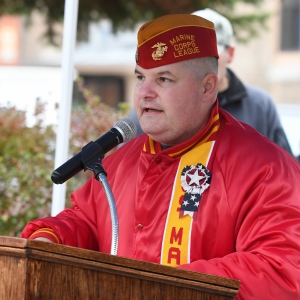 Marine vet gets 24 months of supervised release in stolen valor case, must pay nearly $300K in restitution
Marine vet gets 24 months of supervised release in stolen valor case, must pay nearly $300K in restitution
 Real Estate Transactions: June 20, 2025
Real Estate Transactions: June 20, 2025
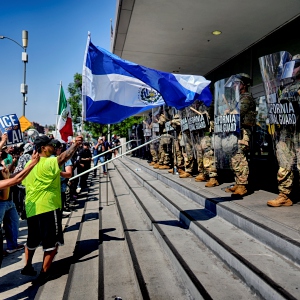 My Turn: Angelenos must not let National Guard silence them
My Turn: Angelenos must not let National Guard silence them
 Green River Festival brings ‘cultural melting pot’ of music to fairgrounds
Green River Festival brings ‘cultural melting pot’ of music to fairgrounds
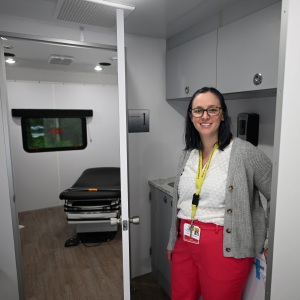 Mobile Health Unit helps expand Community Health Center of Franklin County’s services
Mobile Health Unit helps expand Community Health Center of Franklin County’s services
 With a little help from his community: Northfield Mount Hermon teacher fighting rare form of cancer begins clinical trial
With a little help from his community: Northfield Mount Hermon teacher fighting rare form of cancer begins clinical trial
Gov. Healey signed into law a measure that would allow companies to send customers an electronic delivery receipt for the bulk sale of fuel oils and propane.
“This legislation modernizes the receipt system by allowing the vendor of bulk sale deliveries to utilize an electronic receipt, ticket or other form of recorded representation for the purchaser to review the sale item,” said House sponsor Rep. Jeff Roy, D-Franklin. “Massachusetts is one of the last states to update this antiquated system of delivery of receipts/invoices from bulk sales. In today’s world of technology, it only makes sense that the delivery of receipts/invoices can be safely and efficiently transmitted to the consumer without having to leave a paper bill at the door or mailbox. Many, if not most businesses, already operate this way and there is no good reason not to advance bulk sales in this direction as well, particularly as the consumer would have a choice in the method of delivery.”
Supporters noted that customers often complain about the current practice of the company leaving bags with receipts on their doorknobs or in their mailboxes. They said leaving the receipts in a U.S. Postal Service mailbox is not permitted by law and also leaves consumers vulnerable to identity fraud. They also pointed out that leaving a plastic bag that might remain on the doorknob for several days is a clear signal to would-be criminals that the homeowner is not home and might be traveling.
Gov. Healey signed a measure creating a 10-person special commission to study the feasibility of establishing a Massachusetts Cabo Verdean Cultural Center in Boston to represent the more than 200 years history of Cabo Verdeans in the state.
Supporters, noting the long overdue measure coincides with the 50th anniversary of Cape Verdean independence, said the center would provide a vibrant space for cultural expression, education and unity.
Co-sponsors Sens. Lydia Edwards, D-Boston, and Liz Miranda, D-Boston, did not respond to repeated requests by Beacon Hill Roll Call to comment on their proposal being signed into law.
Gov. Healey filed her third annual state budget, with a price tag of $59.6 billion. She also proposed an additional $1.95 billion in surtax spending that she said would stabilize the MBTA (Massachusetts Bay Transportation Authority) and enable critical investments in transportation and higher education infrastructure. The surtax revenue is from the constitutional amendment, approved by voters in 2022, that imposes an additional 4% income tax, in addition to the flat 5% one, on taxpayers’ earnings of more than $1 million annually. Language in the increase requires that “subject to appropriation, the revenue will go to fund quality public education, affordable public colleges and universities, and for the repair and maintenance of roads, bridges and public transportation.”
“Our fiscal year 2026 budget proposal is a balanced, forward-looking blueprint that meets the needs of our residents and businesses while also taking care of their tax dollars,” Healey said. “We’re making historic investments in the infrastructure that our quality of life and economy depend on — stabilizing the MBTA, fixing our roads, bridges and regional transit, and modernizing college campuses, all while creating good jobs. This budget also prioritizes affordability and economic development — continuing the progress we have made in child care, college affordability, tax cuts, housing, veterans services and more. We are able to build on this progress while controlling our spending and tightening our belts, just as families and businesses are doing across our state.”
“I hear from residents, businesses and local officials on a daily basis about the challenges they face,” said Lt. Gov. Kim Driscoll. “I’m proud of the way that this budget responds to those needs, while also making sure Massachusetts can sustainably support the programs and services on which everyone in Massachusetts relies. We’re fully funding the Student Opportunity Act to make sure our K-12 schools have equitable access to the resources their students and educators need, growing local aid, boosting Chapter 90 funding to improve roads and bridges, and creatively investing in our infrastructure.”
The Massachusetts Fiscal Alliance was quick to criticize the proposal. The group said the budget includes a plan allowing municipalities to raise taxes on meals and hotels, an idea that was soundly rejected last year; a $164 million tax hike by setting up a cap on the charitable deductions law approved by voters in 2000; expansion of tobacco taxes to synthetic nicotine products; and extending the sales tax to candy.
“She’s literally taking candy from a baby,” said Massachusetts Fiscal Alliance spokesperson Paul Craney. “Massachusetts residents already face some of the highest taxes in the nation and this proposal exacerbates that burden. Taxpayers will have to spend $25 million more on candy to just pay for this tax. This budget doubles down on the state’s addiction to higher taxes and spending at a time when residents are already feeling squeezed and leaving for more tax-friendly states. The governor is taking a giant leap in the wrong direction. The governor has become so desperate for higher taxes that she’s even proposing caps on tax deductions for Massachusetts charities. This tax relief law was approved by the voters in 2000. If that isn’t cruel, I don’t know what is.”
“This budget exemplifies the Healey-Driscoll Administration’s disregard for fiscal responsibility,” said MassGOP Chair Amy Carnevale. “Relying on one-time revenues while increasing spending is an unsustainable path, particularly given the unchecked financial strain caused by the Emergency Assistance shelter program and ongoing uncertainty over monthly tax revenues. Instead of charting a path toward stability, this budget doubles down on reckless spending and higher taxes.”
The budget now goes to the House, which will craft and approve its own version, and then it moves to the Senate, which will offer a different plan. A House-Senate conference committee will eventually hammer out a compromise version that will be approved by both branches and sent to Gov. Healey, who has the power to veto any spending and any other items. The House and Senate can then choose to override any of the governor’s vetoes.
Reps. Michael Soter, R-Bellingham, and Kenneth Sweezey, R-Pembroke, have filed legislation they say will restore power to local and state law enforcement agencies by closing a loophole that prevents court officers and law enforcement officials from holding dangerous illegal non-citizens with ICE detainers beyond the time that the individual would otherwise be entitled to be released from state custody, allowing these individuals to walk free after committing significant crimes in certain situations.
“It’s essential that we equip our law enforcement with the resources, tools and support they need to keep our communities safe,” Soter said. “Both sides of the aisle are united in the belief that undocumented immigrants who come here to commit crimes should be returned to their home countries. The state and local authorities must be able to detain these criminals and give ICE the opportunity to take action.”
“The immigration issue in Massachusetts has gotten completely out of control,” Sweezey said. “This piece of legislation is a very simple, commonsense first step in rectifying part of the issue. ... I look forward to working on gaining additional support and pushing this bill across the finish line into law, making our communities safer in the process.”
“[We are] monitoring reports of activities by Immigration and Customs Enforcement in the Greater Boston area,” said Kevin Brown, executive vice president of 32BJ SEIU, the largest property service workers union in the country, with 185,000 members across the East Coast, including 20,000 in Massachusetts and Rhode Island. “We reaffirm our readiness to support our members’ rights and the rights of immigrants — our neighbors, friends, family members and coworkers, whose presence and work enrich our communities and our economies.”
Meanwhile, Massachusetts Attorney General Andrea Campbell joined 10 other state attorneys general in issuing a joint statement commenting on a memorandum from a President Trump appointee at the U.S. Department of Justice addressing state and local involvement in federal immigration enforcement.
“It is well-established — through longstanding Supreme Court precedent — that the U.S. Constitution prevents the federal government from commandeering states to enforce federal law,” the statement reads. “While the federal government may use its own resources for federal immigration enforcement, the court ruled in Printz vs. United States that the federal government cannot ‘impress into its service — and at no cost to itself — the police officers of the 50 states.’ This balance of power between the federal government and state governments is a touchstone of our American system of federalism.”
Attorney General Andrea Campbell announced that she, along with a bipartisan coalition of states and other parties, has reached a $7.4 billion settlement in principle with members of the Sackler family and their company, Purdue Pharma, for their instrumental role in creating the opioid crisis. Up to $108 million of the settlement funds will be distributed to Massachusetts.
The suit says that under the Sacklers’ leadership, Purdue invented, manufactured and aggressively marketed opioid products for decades, perpetuating waves of addiction and overdose deaths across the state and country.
“The Sackler family will forever be remembered as a symbol of greed, profiting off pain to destroy countless lives across the commonwealth and country,” Campbell said. “While this settlement cannot bring back the lives lost, it will bring in much-needed funds to begin to remediate the damage and ensure that the Sacklers can be held accountable for the lasting devastation they have caused. I am incredibly grateful to the families who turned their pain into purpose to inform our work in this space.”






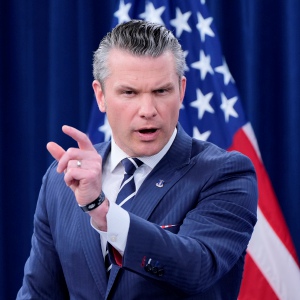 Hegseth: US does not seek war with Iran after attack on nuclear sites
Hegseth: US does not seek war with Iran after attack on nuclear sites Clesson Brook Watershed open house to detail Buckland’s climate resilience planning
Clesson Brook Watershed open house to detail Buckland’s climate resilience planning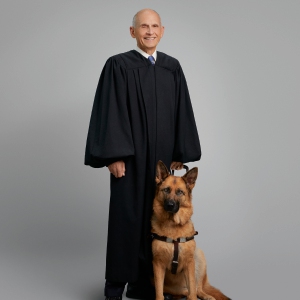 Former judge next Charlemont Forum speaker
Former judge next Charlemont Forum speaker
